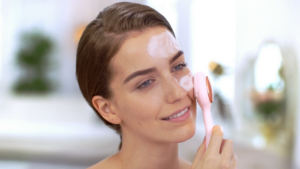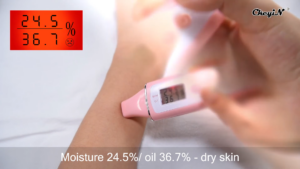It is crucial to know how climate affects skin health for the ultimate skin protection throughout the year. Sensitive and Resilient SkinWhen it comes to the skin type in the form in which it relates to the visitor, the sensitive skin and the stronger skin, for both, the skin which is more sensitive than the other is less noise. Different climatic conditions from harsh winters to the humid summers affect the hydration and the sensitivity of the skin and even the resilience of the skin to a great extent. By fitting skincare routine and product selection to the environment, we can keep our skin barrier strong while addressing our individual skin needs, ensuring comfortable skin all year around. In it, we talked about how environmental conditions affect your skin and what you can do about it with your skincare routine.
The Winter: Dryness and Extreme Conditions
The cold air outside causes the water in your skin to evaporate, which in turn perpetuates the dryness and flakiness that kicks our skin sensitivity into high gear. To combat these, layer on hydrating skincare that are rich in emollients such as ceramides, hyaluronic acid, and shea butter to prevent further loss of moisture to strengthen the skin barrier. Cleanse with a hydrating wash (not soap, which removes your body’s natural oils) and rinse warm, not hot. Top it off with a nourishing moisturizer and, if you need it, a facial oil or occlusive balm that will seal in the hydration and create a barrier between your skin and the elements. Using a mild scrub or gentle chemical exfoliant to exfoliate your skin regularly will help remove or slough off the upper layers of dull, dead skin cells, leaving your skin smooth and radiant.
Summer: Oily Skin Management and Sun Protection
Hot temperatures and high humidity in summer set the ground for overproducing sebum, hence clogged pores, and sun damage. Switch to oil-free, lightweight moisturizers, and non-comedogenic broad-spectrum SPF to shield your delicate skin from the sun (and help prevent the acne-induced hyperpigmentation and productive photoaging that leads to those fine lines you hate!). Choose water-based cleansers that will remove sweat, dirt, and sunscreen without stripping skin. Use antioxidant serums or lightweight hydrating gels to protect your skin from free radical damage and keep your skin hydrated without clogging your pores. Using a mattifying primer, in addition to blotting papers, helps keep shine away during the day (as well, as allows for a matte finish).
Changes in Temperature: spring to fall
Transitional seasons such as Spring and Fall can also effect your skin’s balance and sensitivity due to the changing temperatures and humidity. Adapt your skincare routine by including some multitasking products including serums of hydration, light moisturizers, and gentle exfoliates. Pay more attention to restoring and strengthening your skin barrier with good products that contain soothing ingredients such as aloe vera, chamomile, and green tea extract to soothe irritation and redness. Balanced pH cleanser: Help balance the skin, and get it back to its natural oil production while preparing your skin for what every season dishes out.
Year-round elements: Steadiness and Variability
Maintaining an all-season skincare program to keep skin healthy and protected from environmental stress is also important. Adjust your skincare routine by using products that meet your skin requirements with your climate conditions in mind, focusing on extra hydration, sun protection, and skin barrier building blocks. What you will notice is how your skin looks and teels changes throughout the seasons, and how want to make sure your regimen matches those concerns or new sensitiveness. To top it all off, keep your skin healthy from the inside out by drinking lots of water and including hydrating foods rich in antioxidants, vitamins, and essential fatty acids.
Conclusion
Seasonally appropriate skincare ensures that your skin stays healthy, plump, happy, and comfortable all year around. Knowing how the seasons can affect our skin hydration, sensitivity, and oil production can help us adjust our skincare routine accordingly. Topical hydration, sun protection, and support for the skin barrier improve the overall look, feel, and function of the skin amongst seasonal changes. The personalization of skin health to optimize the dynamic interplay between climate and skin health fosters confidence and well-being all year round.








